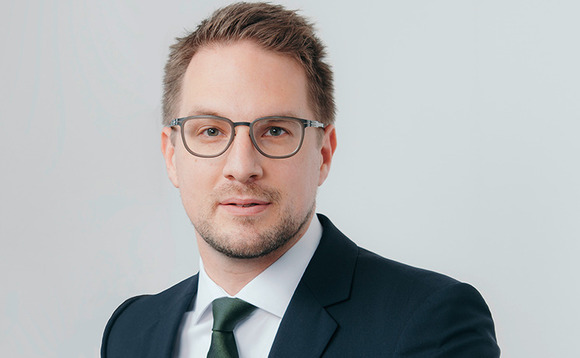
LP Profile: ACP opens up PE programme

Following the first close of its debut private equity fund for external institutional investors, Michael Lindauer, co-head of private equity at Allianz Capital Partners (ACP), speaks to Unquote about the LP's private equity allocation strategy and its approach in an increasingly competitive market.
Munich-headquartered insurance company Allianz was founded in 1890. Its Allianz Global Investors (AllianzGI) division is one of the firm's asset management subsidiaries and has assets under management of approximately EUR 633bn. Allianz Capital Partners (ACP) manages the firm's private equity, infrastructure and renewable energy strategies under the AllianzGI division.
ACP held a EUR 520m first close for its debut private equity fund for institutional investors in October 2021, as reported, backed by investors including insurance companies, pension funds and family offices.
"This had been in the making for some time," says Michael Lindauer, the co-head of private equity at Allianz Capital Partners. "As a first step, in 2018, we became part of one of the group's asset managers, AllianzGI. Allianz's PE programme has been running since 1996, so we are now in our 25th year. With Allianz we have a big internal investor behind us with a good appetite for PE, and this appetite has grown over time. We wanted to open up the programme for external clients, but only once we were sure there was no room for compromise, so we could fulfil the needs of both internal and external clients around having access to the best fund managers and the allocations we and others get."
The firm's plan to open up its strategy will therefore balance the needs of internal and external clients, Lindauer says. "The idea of 'Invest with Allianz' is to invest from one programme, with internal sponsors and external clients participating on a pro rata pari passu basis. The fund will be part of our established overall PE programme and won't affect the way we approach the market and deploy capital, it will just be a pro rata participation."
ACP previously managed its PE programme via an evergreen structure, whereas the new fund has a closed-ended Luxembourg structure, but the two will invest alongside each other. The fund has not yet set a target, as reported.
ACP has deployed an average of around EUR 3bn per year in PE investments. It expects to make 100-120 investments from the new fund; the firm generally makes 25-30 PE deals per year.
ACP can deploy EUR 40m-200m per ticket, with Allianz providing at least half of the overall capital committed to each investment. ACP's fund has the same investment criteria as the existing global strategy, which invests equal amounts in North America, Asia and Europe. The strategy invests 90% of its capital in buyout and growth funds, with up to 10% dedicated to venture capital funds in Asia.
"The team mirrors our strategy, so we have equal teams in New York, Singapore and Munich with 22 investment professionals in total, and all of them have some kind of direct investment experience at a direct investment firm or a due diligence provider," says Lindauer. "Normally our usual GP coverage team also works on the co-investments, which makes it easier, since you don't hand over from a coverage team to a co-investment team."
Making the right choices
Up to 20% of the fund can be deployed in co-investments, on a no-fee, no-carry basis. "Our co-investment strategy does not follow a clear sector basis; we have found that the key to success, like in primaries, is just to take the right decisions at the right time," says Lindauer. "We started co-investing in 2008 and we are now an accepted co-investment partner in the market with good dealflow, so we can be adequately selective."
According to Unquote Data, Allianz's previous co-investment deals include EQT's EUR 1bn acquisition of Denmark-headquartered content management software Sitecore in April 2016, to which ACP contributed EUR 20m. Fellow co-investors included Danish pension funds Danica and Sampension.
ACP occasionally does LP secondary stake deals, but the firm is selective, according to Lindauer: "We do secondaries opportunistically, often around our primaries portfolio. However, we think one needs to act carefully with the market being quite pricey. We consider continuation vehicles and GP-leds as part of portfolio monitoring – we would roll over or take the exit, depending on the situation."
Choosing the right GPs is crucial to creating a strong portfolio, Lindauer notes: "This is an ever more competitive market, so we always try to be proactive, early and consistent, especially with managers that are access-restricted. We have a shadow portfolio where we look at who the interesting GPs are given what we know now, seeing if ongoing due diligence changes our minds. We typically invest at first close, so the GPs have certainty that we will be around."
The firm does not rule out investments in debut or emerging managers. "We assess every manager on their own merits," Lindauer says. "We will go for it if they have an interesting proposition. For any region or country in Europe, we have coverage teams whose job it is to know who is around and to do a first assessment of who might be interesting. A lot of emerging managers also come out of larger firms, so knowing those means we can have a good first assessment on emerging managers. We would not do a kind of 'two man and a dog', blank sheet of paper firm – but if the GP team has a history, their level of motivation is often high."
According to Unquote Data, ACP has backed private equity funds including CBPE Capital Fund X, ECI 11, Hg Saturn, Hg 8 and Equistone Partners Europe Fund VI. Debut and emerging manager funds backed by the firm include Trill Impact Fund, which held a final close in July 2021 on EUR 900m; the emerging impact investor was founded in 2019 by Jan Ståhlberg (formerly of EQT) and is backed by Nordea Asset Management
Adapting to change
While ACP is comfortable in its established strategy, the firm can change the way it invests to account for market trends and developments, according to Lindauer. "Our market is not set in stone, and if we see the market changing, we would also adjust our strategy accordingly," he tells Unquote. "There are always small tweaks – for example, we have looked much more into growth capital for the past five years, which has served us well as we have had good exposure. We made a deliberate decision to focus more on this: we saw a lot of capital being raised in early-stage venture, so we thought that we could then go one level later with a good pool of companies."
Although the venture capital market in Europe has seen significant activity in 2020 and 2021, ACP does not intend to expand its VC allocations to Europe in the immediate future. "VC in itself is not the easiest proposition as it is not a very scalable asset class for us," Lindauer says. "But we do it in Asia as there is an attractive risk-reward profile and we have access to these managers early on, which helps us get the access at a level we want. We are not planning to expand to Europe for the time being for VC, we are happy with the exposure that we have from the growth capital sub-strategy."
Like many LPs, ACP is increasingly focused on ESG. "We started looking deeper into the topic of ESG around 10 years ago – we partner with a GP for 10-12 years, so we need to make sure they are doing the right things right from the beginning," says Lindauer. "Allianz is a member of the Net Zero Asset Owner Alliance and as a result we are working with our GPs to further drive reporting on aspects such as carbon footprint, as basis for adequate science-based targets further down the line. We have also joined the Initiative Climat International (iCI), which strives for the definition of good processes and standards in the field of carbon reduction. We can hopefully help drive these further."
Although effective and meaningful ESG reporting is increasingly important for LPs and GPs alike, ACP emphasises the importance of identifying whether a GP is committed to working on the topic, too. "Reporting is one thing, but what is most important to us is that we feel we have a joint mindset on these things," Lindauer says. "We want to work together with GPs. We do have our requirements and we do need data on ESG KPIs – which the industry as a whole wants to generate – but it will be a bit of a journey to get the processes and methodologies in place. It's not just about having the best ESG report – we want to make sure that people have a joint compass with us on these things, to advance the case together."
Latest News
Stonehage Fleming raises USD 130m for largest fund to date, eyes 2024 programme
Sponsor acquired the public software group in July 2017 via the same-year vintage Partners Group Global Value 2017
Stonehage Fleming raises USD 130m for largest fund to date, eyes 2024 programme
Czech Republic-headquartered family office is targeting DACH and CEE region deals
Stonehage Fleming raises USD 130m for largest fund to date, eyes 2024 programme
Ex-Rocket Internet leader Bettina Curtze joins Swiss VC firm as partner and CFO
Stonehage Fleming raises USD 130m for largest fund to date, eyes 2024 programme
Estonia-registered VC could bolster LP base with fresh capital from funds-of-funds or pension funds









